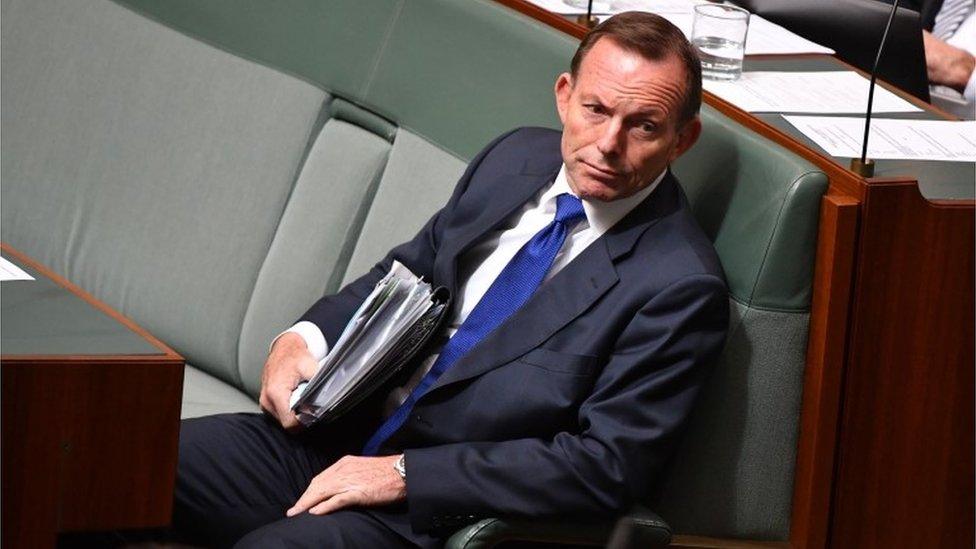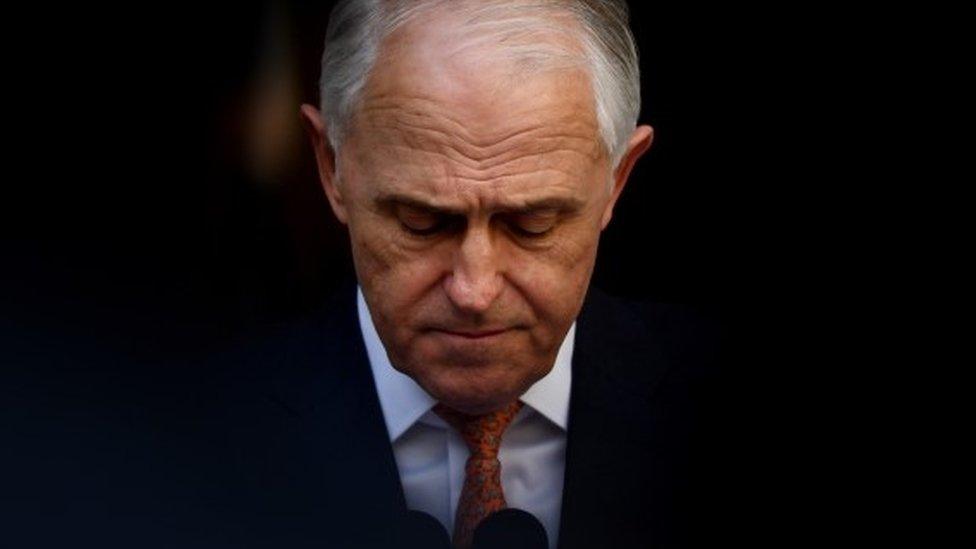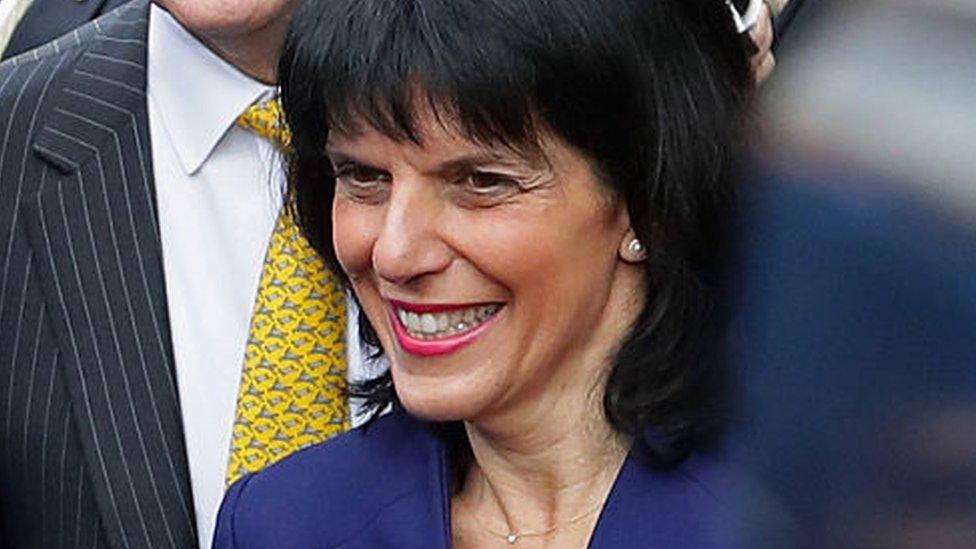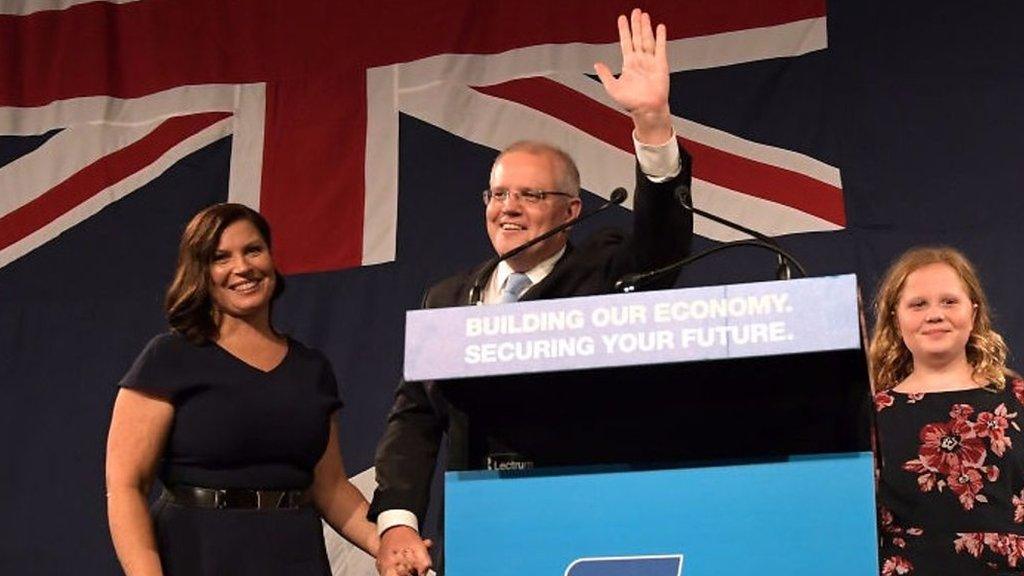Why Australia's PM is 'keeping enemies close' in government reboot
- Published
Scott Morrison's first speech as PM on Friday - telling of his plans to unite his party
Party infighting was behind Malcolm Turnbull's removal as Australia's prime minister last week. The BBC's Hywel Griffith looks at how some of the key players have fared.
After the drama of "the spill", new Prime Minister Scott Morrison cast himself as a next-generation leader, anxious to end the plotting of the past.
But his newly assembled cast of frontbenchers includes several protagonists from last week's chaos in leading roles.
The first to be sworn in was Peter Dutton, the man who initiated the downfall of Malcolm Turnbull, who has returned as Home Affairs Minister.
One of Mr Dutton's key supporters was Angus Taylor, who has landed the key position of Energy Minister.
Now former prime minister Tony Abbott, who many accuse of orchestrating last week's events from the wings, has been brought back into the limelight as the government's likely indigenous affairs envoy.
Maintaining peace
According to Dr Stewart Jackson, from the University of Sydney, it could be a smart move by Mr Morrison.
Rather than rewarding "insurgency" (as Mr Turnbull put it), Dr Jackson argues that giving Mr Abbott a new role in government - but outside of the cabinet - is a way of keeping him busy.

Tony Abbott has sat on the government's backbench since 2015
"And it means you can send him off to the Northern Territory often, and the Northern Territory is far away [from Canberra]," Dr Jackson says.
Mr Abbott's part in last week's calamitous episode has drawn wide criticism.
Several Liberal Party members have publicly condemned Mr Abbott, while former Labor prime minister Kevin Rudd described him as a "giant wrecking ball of Australian politics"., external
For his part, Mr Abbott has asserted "the era of the political assassin is over," without making it fully clear whether he saw himself as the assassin or the victim. Mr Abbott was himself ousted by Mr Turnbull in 2015.
But as he discussed Mr Morrison's job offer, Mr Abbott told 2GB radio that "we've had far too much backstabbing, we've had far too much leaking and briefing, and I think we can put all of that behind us".
Why Australia has had so many prime ministers
Similar motives may have been at play in offering a new drought envoy role to former deputy PM Barnaby Joyce, who had his own spectacular falling out with Mr Turnbull.
Dr Jackson says: "I did think initially, is this way of saying [to Mr Abbott] 'Go out there into the bush, along with Barnaby, and spend all your time out there so you won't be here making trouble?'"
Positive role?
But, in fact, Dr Jackson believes that Mr Morrison is hoping to harness both men's prominent media profiles in order to sell the government's message.
"Tony Abbott's capacity for being able to get on to the media is renowned and I don't think this is going to stop him doing that," he argues.
"But at least it will refocus people's attention, and ask what are you doing on indigenous affairs - a tricky portfolio at the best of times."
Although Mr Dutton was his direct rival in the leadership contest, Mr Morrison decided very quickly not to banish him to the backbenches, either.
By returning Mr Dutton to his old job, he is perhaps keeping his friends close, and his enemies closer. Mr Turnbull has already announced that he will quit parliament.
With nine months at most before the next election, the government desperately needs to show the voters a united front.
And according to Dr Jackson, the prime minister has at least given himself "a reasonable chance of salvaging something".
- Published28 August 2018

- Published29 August 2018

- Published18 May 2019
